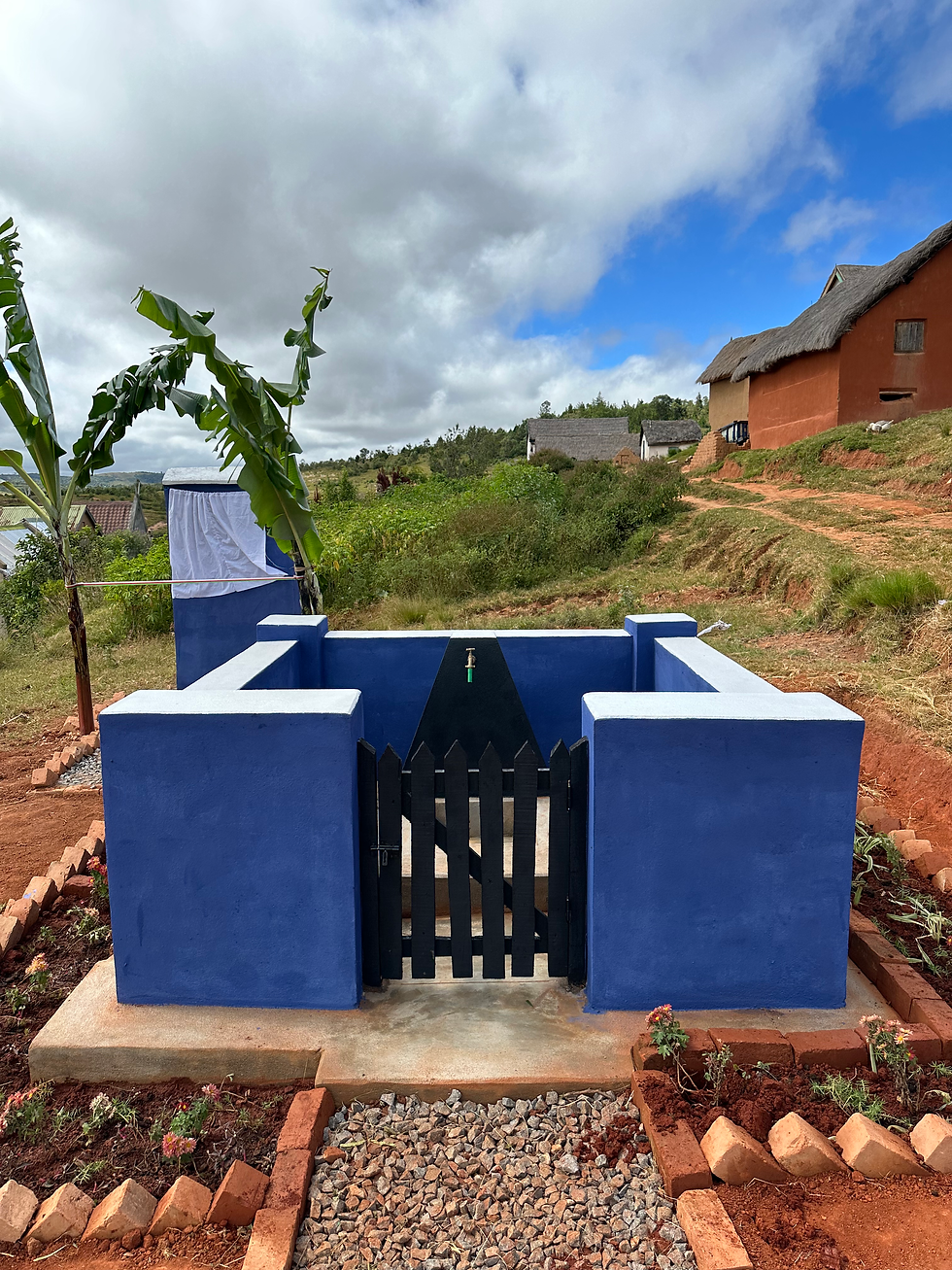Ambohibao Water System
inauguration: April 4, 2024 🎉
Thanks to Street Foundation and ACN for financing this project ❤️
📍Location: Ambohibao,
Rural commune of Ambohitrabiby,
District of Antananarivo Avaradrano,
Analamanga Region.
💡Objectives:
Construction of 1 concrete tank of 1m³ to capture and protect water from a reliable, all year round natural spring located at Andoharanokely. From there the water will be piped to a new reservoir of 12m³ and on to five new standpipes at located at strategic points around the village. A total of 3.62 meters of new pipe will be needed for this new installation.




Built by José RASOAMIARAMANANA's team.
Cost
TOTAL GRANT REQUESTED: Ariary 30,423,250 (£ 6,085)
BRIEF PROJECT OUTLINE:
Rationale
Conditions for the population of Ambohibao are typical of those in rural areas throughout Madagascar in that they have never had access to clean, safe drinking water or proper sanitation. The majority of people in these particularly poor and deprived farming communities live in harsh and primitive conditions and make their living from working the land and cattle raising.
The nearest source of water is a natural spring located 500 meters from the village and involves a return journey on foot of about 45 minutes. During the rainy season the dirt track leading to the spring becomes slippery and potentially dangerous. Towards the end of the dry season in September the spring runs dry, and the villagers have to seek alternative sources of water – often the nearest rice field where the water is contaminated by human and animal waste.
Traditionally collecting water is the responsibility of women and girl children. – an exhausting and time-consuming task carried out several times a day, reducing the time women have to take care of their families and supplement the family income, and preventing girls from attending school.
Reliable access to safe, clean water would allow women to engage in more productive activities and increase their families’ income; and more girl children would be freed from this arduous task and able to go to school. Collecting water has a significant impact on families with babies and small children whose water needs are considerable. And even the elderly, men and women, have to collect their own water.
The villagers are aware of the need to boil water before consumption, but charcoal, the fuel most commonly used for cooking, is too expensive for the majority to afford; and collecting firewood becomes increasingly difficult and threatening to the already fragile environment – contributing to deforestation. Several women told MDF that for many years they had collected water up to three times a day. They live in the hope that finance can be found to give them easier access to safe, clean water all year round, and have appealed to MDF for support.
Main Inputs
The project has been visited and evaluated on site with local community leaders. The population has agreed to cooperate and work alongside MDF’s construction team in the successful completion of this project by providing unskilled labour free of charge – to dig trenches for the pipes and supply locally available building materials, such as sand, gravel and stones.
From experience local participation encourages ownership and pride in what the community has created, and gives MDF and its supporters the assurance needed to be reasonably satisfied the system will be well maintained after completion.
Community leaders have given a solemn undertaking to set up a maintenance committee for each standpipe. On completion members of the management committee will receive training from MDF’s team on how to maintain and repair the installation, and put in place a modest and affordable payment system to cover the cost of repairs and maintenance.
When finance becomes available MDF will advance only half the total project cost to allow work to begin. The second half will be paid only on receipt of a satisfactory, illustrated report, including receipted bills, showing that work is progressing. Monitoring visits will also be carried out as necessary. MDF will manage the finances and the project throughout - thus applying rigorous financial and quality controls
Main Outputs: .
Providing clean water to the hamlets that make up Ambohibao will contribute to improving health and sanitation in the community, reduce the incidence of life-threatening illness caused by water-borne diseases, relieve the women in particular of the onerous task of collecting water several times a day and give them time to pursue more productive activities, and allow more girls to be educated just like their brothers - thus contributing to the alleviation of poverty.
